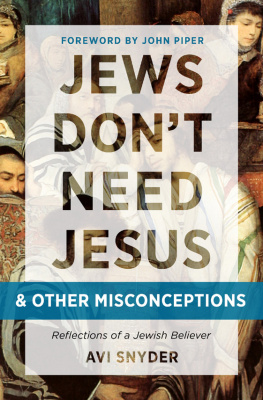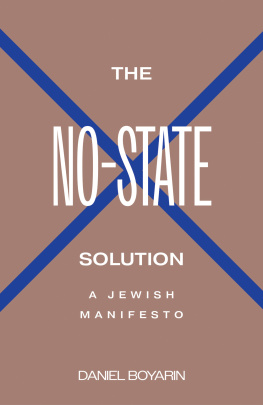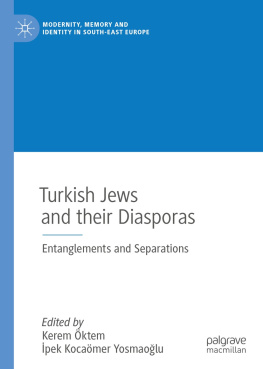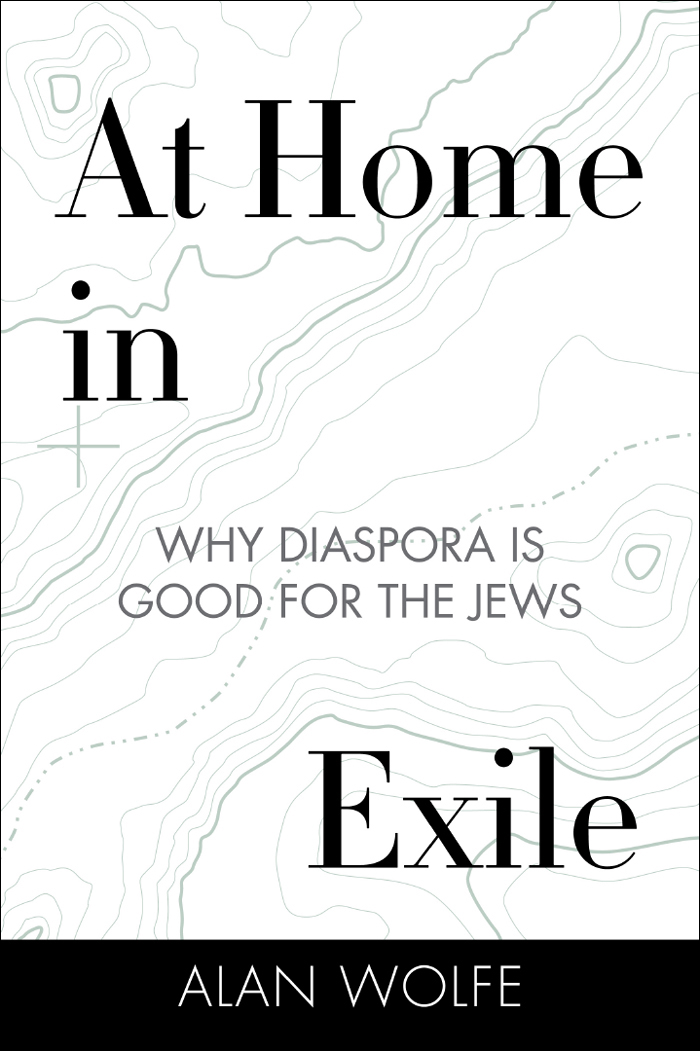Alan Wolfe - At Home in Exile: Why Diaspora Is Good for the Jews
Here you can read online Alan Wolfe - At Home in Exile: Why Diaspora Is Good for the Jews full text of the book (entire story) in english for free. Download pdf and epub, get meaning, cover and reviews about this ebook. year: 2014, publisher: Beacon Press, genre: Politics. Description of the work, (preface) as well as reviews are available. Best literature library LitArk.com created for fans of good reading and offers a wide selection of genres:
Romance novel
Science fiction
Adventure
Detective
Science
History
Home and family
Prose
Art
Politics
Computer
Non-fiction
Religion
Business
Children
Humor
Choose a favorite category and find really read worthwhile books. Enjoy immersion in the world of imagination, feel the emotions of the characters or learn something new for yourself, make an fascinating discovery.

- Book:At Home in Exile: Why Diaspora Is Good for the Jews
- Author:
- Publisher:Beacon Press
- Genre:
- Year:2014
- Rating:3 / 5
- Favourites:Add to favourites
- Your mark:
At Home in Exile: Why Diaspora Is Good for the Jews: summary, description and annotation
We offer to read an annotation, description, summary or preface (depends on what the author of the book "At Home in Exile: Why Diaspora Is Good for the Jews" wrote himself). If you haven't found the necessary information about the book — write in the comments, we will try to find it.
Since the beginnings of Zionism in the twentieth century, many Jewish thinkers have considered it close to heresy to validate life in the Diaspora. Jews in Europe and America faced a life of pointless struggle and futile suffering, of ambivalence, confusion, and eternal impotence, as one early Zionist philosopher wrote, echoing a widespread and vehement disdain for Jews living outside Israel. This thinking, in a more understated but still pernicious form, continues to the present: the Holocaust tried to kill all of us, many Jews believe, and only statehood offers safety.
But what if the Diaspora is a blessing in disguise? In At Home in Exile, renowned scholar and public intellectual Alan Wolfe, writing for the first time about his Jewish heritage, makes an impassioned, eloquent, and controversial argument that Jews should take pride in their Diasporic tradition. It is true that Jews have experienced more than their fair share of discrimination and destruction in exile, and there can be no doubt that anti-Semitism persists throughout the world and often rears its ugly head. Yet for the first time in history, Wolfe shows, it is possible for Jews to lead vibrant, successful, and, above all else, secure lives in states in which they are a minority.
Drawing on centuries of Jewish thinking and writing, from Maimonides to Philip Roth, David Ben Gurion to Hannah Arendt, Wolfe makes a compelling case that life in the Diaspora can be good for the Jews no matter where they live, Israel very much includedas well as for the non-Jews with whom they live, Israel once again included. Not only can the Diaspora offer Jews the opportunity to reach a deep appreciation of pluralism and a commitment to fighting prejudice, but in an era of rising inequalities and global instability, the whole world can benefit from Jews passion for justice and human dignity.
Wolfe moves beyond the usual polemical arguments and celebrates a universalistic Judaism that is desperately needed if Israel is to survive. Turning our attention away from the Jewish state, where half of world Jewry lives, toward the pluralistic and vibrant places the other half have made their home, At Home in Exile is an inspiring call for a Judaism that isnt defensive and insecure but is instead open and inquiring.
Alan Wolfe: author's other books
Who wrote At Home in Exile: Why Diaspora Is Good for the Jews? Find out the surname, the name of the author of the book and a list of all author's works by series.










